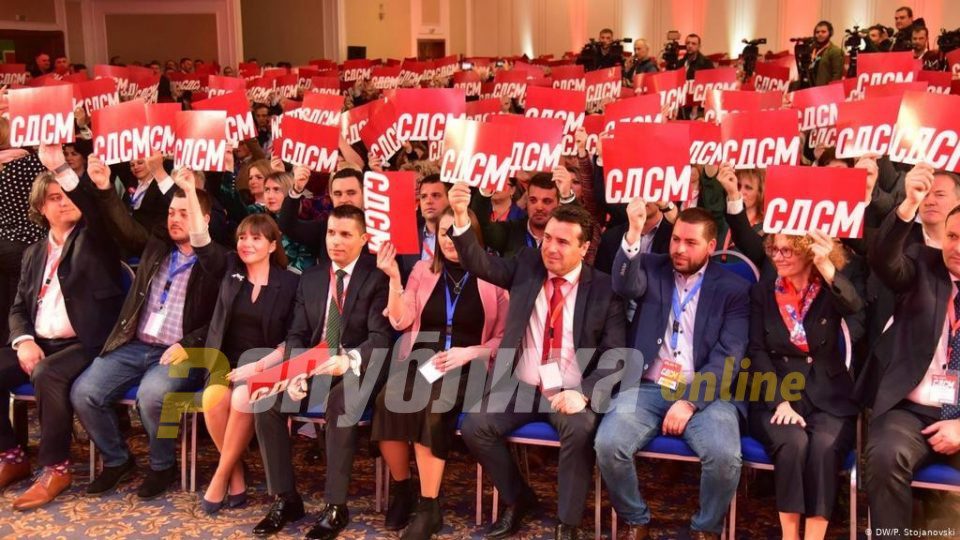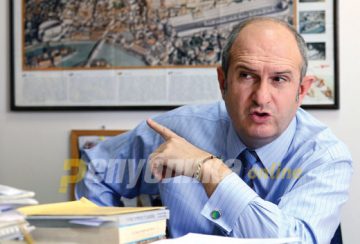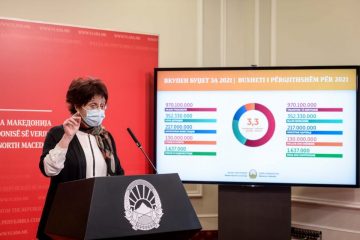After a major faction appeared in the ruling SDSM party, with former party leader Branko Crvenkovski calling on Zoran Zaev to resign as Prime Minister and party leader, Zaev gathered his closest circle to come out in his support.
Deputy Prime Minister Ljupco Nikolovski issued a social media statement that what Zaev said during his scandalous BGNES interview is “a position determined by the party and its institutions”. The same position was contained in a statement issued by the SDSM party as well.
Deputy party leader Muhamed Zekiri, who is becoming one of closest Zaev’s confidants and even had Zaev as the best man at his wedding, rebuked Crvenkovski for his criticism of Zaev and shared the same statement issued by the party. So did Interior Minister Oliver Spasovski and Justice Minister Bojan Maricic.
Outside of his inner circle, Zaev is facing a rebellion in the so-called “urban wing” of the party (as opposed to Zaev’s own “rural wing”). The “urban wing” is mostly made up of factions who led the party during communist times, when vocal support for the partisan struggle against Bulgaria was the norm for elevating oneself in the party. Defense Minister Radmila Sekerinska, who is the principal deputy leader of the party and is seen as the main link between Zaev and the “urban wing”, came out in support of Zaev.
Besides Sekerinska, Zaev got the support of another former short-lived SDSM party leader and Prime Minister – Vlado Buckovski, who was recently dispatched to a mission of good will to Bulgaria.
Macedonia is going through a catharsis. For me this is a deja vu moment. In 2006 I tried to speak with Bulgarian Prime Minister Stanisev about our shared future in the EU, based on our common history and we agreed to have a joint honoring of Ss. Cyril and Methodius. That was welcomed with knives drawn by the media. Now, 14 years later, another Prime Minister is accused of selling out our history. Why? In my opinion, he is honestly fighting, with all his might, for our European future, Buckovski said.
But comments from other SDSM officials were more reserved. President Stevo Pendarovski, another “urban wing” exemplar, who was personally insulted by Zaev in the BGNES interview as “inexperienced”, called Zaev’s new positons “historic revisionism” in a statement in which he made sure to remind Zaev of his 20 years of work in international relations as adviser to Presidents Trajkovski and Crvenkovski.
And Deputy Prime Minister Nikola Dimitrov, who is swapping party allegiance from being a faction of one in VMRO-DPMNE to becoming a coldly accepted SDSM candidate at the latest general elections, was also not enthusiastic about Zaev’s comments. Dimitrov lamented how Zaev is inserting politics in historic issues and how Bulgaria is responding by pressing its advantage to the full in relation to Macedonia.
The idea of the treaty was to leave history to historians, so that we can deal with the present and the future. To resolve our bilateral disputes bilaterally, without allowing them to obstruct our path toward the EU
Zaev also faced strong criticism from two former party officials who came close to leading the party in the post-Crvenkovski period, Zoran Jovanovski and Andrej Petrov. Jovanovski accused Zaev of hate speech against his own country, while Petrov insisted that reconciliation after the Second World War is necessary, but so is a sincere apology from the aggressors. “The claim that the Bulgarians were liberators of Macedonia is incorrect. This has nothing to do with the Bulgarian people. German Chancellor and Nobel award recipient Willy Brandt knelt on his knees in the Warsaw ghetto and asked for forgiveness. He did not try to rewrite history”.
One Government Minister who did not just share the SDSM party statement but made one of her own is Culture Minister Irena Stefoska, who is herself a historian, who were in the similar vein to those of Andrej Petrov.
I’m convinced that the Prime Minister is trying to literally push the country forward, butr despite all his efforts, he can’t help our neighbor Bulgaria, because the Bulgarian society, like any other society, must by itself deal with the dark pages of its own history, Stefoska said.
And officials aside, Zaev is facing major defections among his unofficial supporters, especially from the easily combustible leftist Colored Revolution activists, who helped him to power by joining his protests in 2015. The main organizer of the NGO network that helped Zaev at the time, Vladimir Milcin long of the George Soros funded Open Society Foundation in Macedonia, has been critical of Zaev for a while now. But many others have voiced their anger at Zaev, especially as the left has been promoting slogans associated with Antifa and has looked toward the Second World War struggle for inspiration.
The division even split families as the influential Jovanovski family of journalists and SDSM supporters was torn between standing by Zaev (Borjan Jovanovski) or denouncing his new take on Bulgaria (his niece Tanja Milevska). Milevska, who was appointed Brussels correspondent for the Macedonian Information Agency shortly after Zaev grabbed power in 2017, along with her mother Svetlana Jovanoska who was named PR officer in the Macedonian embassy there, was rudely insulted by one of Zaev’s top attack dog journalists Sase Ivanovski – Politiko on Twitter. In a response, which illustrated the depth of the mistrust in the ruling party, Milevska asked Ivanovski if the order to go after her came from Zaev’s PR chief Marjan Zabrcanec.







Comments are closed for this post.